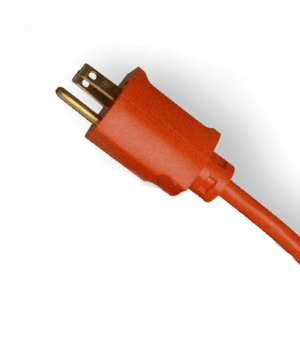Building a wind farm
Use critical thinking and research techniques to evaluate the potential of a wind farm.

Overview
Students examine the details of a hypothetical scenario where a wind energy company wishes to build a wind farm on the edge of a small city in B.C. Using the criteria for an effective survey and details from the scenario, students judge the effectiveness of the survey and decide if the city council should trust the results.
Instructions
What you'll need
- "Conducting a survey" handout
- "Assessing the effectiveness of a survey" worksheet
- Organize your students into small groups (2-3 students) and provide each group with a copy of the "Conducting a survey" handout, and each student with a copy of the "Assessing the effectiveness of a survey" worksheet.
- Read the scenario with your students, then invite groups to rate the effectiveness of the survey described in the scenario. Briefly explain that the city council will use the survey data to decide if the wind energy farm development should be approved:
- How effective was the survey?
- Should the city council trust the information from the survey?
- Invite groups to share their decisions and thinking with the class, prompting them to suggest the qualities of an effective survey. As groups share, co-develop or present the criteria for an effective survey:
- Valid:
- Do the survey questions match the purpose of the survey?
- Reliable:
- Have the survey questions been tried and tested?
- Do the survey questions get consistent responses from everyone who responds?
- Unbiased:
- How well does the survey sample represent the population?
- Does the wording of the questions present an impartial or neutral view on the topic?
- Does the wording of the questions influence participants to select one response over another?
- Valid:
- Guide your students’ attention back to the worksheet, and briefly explain that their challenge is to rate each aspect of the survey. Encourage them to use details from the scenario as evidence to support their rankings.
- After groups have rated each aspect of the survey, invite them to develop an overall rating for the effectiveness of the survey.
- Invite students to reflect on their initial rating of survey’s effectiveness. Ask students to decide if they would change their original decision.
- To conclude the activity, encourage students to share their ratings and thinking with the class. As students share, invite them to decide if the city council should trust the results of the survey when deciding if they should support the development of the wind farm.
Modify or extend this activity
- Invite groups to suggest the three most important changes that could be made to improve the effectiveness of the survey.
- Have students consider factors that would make their community viable for a wind farm.
Curriculum Fit
Grade 9 Mathematics
Big idea
- Analyzing the validity, reliability, and representation of data enables us to compare and interpret
Content
- Statistics:
- Population versus sample, bias, ethics, sampling techniques, misleading stats
- Analyzing a given set of data (and/or its representation) and identifying potential problems related to bias, use of language, ethics, cost, time and timing, privacy, or cultural sensitivity
Curricular competencies
Reasoning and analyzing
- Use reasoning and logic to explore, analyze, and apply mathematical ideas
Understanding and solving
- Apply multiple strategies to solve problems in both abstract and contextualized situations
- Develop, demonstrate, and apply mathematical understanding through play, inquiry, and problem solving
Communicating and representing
- Use mathematical vocabulary and language to contribute to mathematical discussions
- Explain and justify mathematical ideas and decisions
Connecting and reflecting
- Reflect on mathematical thinking
Assessments
Assess your students’ abilities to:
- Use mathematical vocabulary and language to contribute to mathematical discussions.
- Explain and justify mathematical ideas and decisions.
Teaching Notes
Energy in B.C.
This activity gets students thinking about the best renewable sources of energy for a community based on analyzing survey results.
In British Columbia, the abundance of mountains, hills, lakes, rivers and streams make it an ideal province for hydroelectricity. Most of the electricity in B.C. is clean energy generated by hydroelectric dams.
While B.C. leans heavily on hydroelectric power, wind energy is considered to be one of the most promising emerging green power sources.






